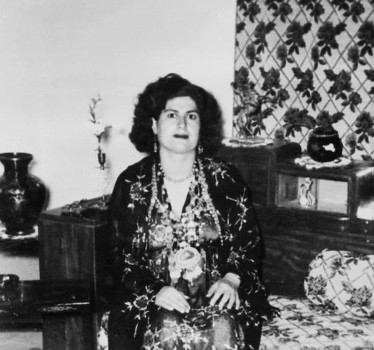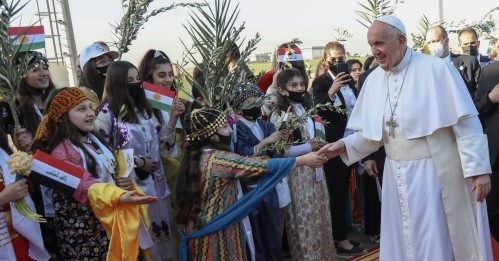In September, I had the honor of attending a celebration marking 20 years of friendship between South Korea and the Kurdistan Region. The event was a beautiful showcase of cultural and diplomatic exchange, with the air filled with the sounds of Kurdish and Korean music and young Kurdish girls performing a charming Korean dance. But the moment that touched everyone’s hearts was when Seungcheol Lim, South Korea’s Consul General to Erbil, sang the Kurdish song “Baran Barane.” His performance was emotional, bridging two cultures in a truly unique way.
As a journalist for Kurdistan Chronicle, I was there not to cover the event, but to personally reflect on the deep bond between these two nations. In 2004, fresh out of university with a degree in English literature, I joined the South Korean Army’s Zaytun Division as a translator. I witnessed firsthand the beginning of this relationship, one rooted in mutual respect, understanding, and shared efforts.
The South Korean Army arrived in Erbil in September 2004 with a simple yet powerful message: “We are your friends.” And they lived by those words every day. They did not come as just another military force; they came as partners to help the Kurdish people. They named their military division Zaytun, which means olive in Arabic and Kurdish, symbolizing peace, and that is exactly what they brought with them.
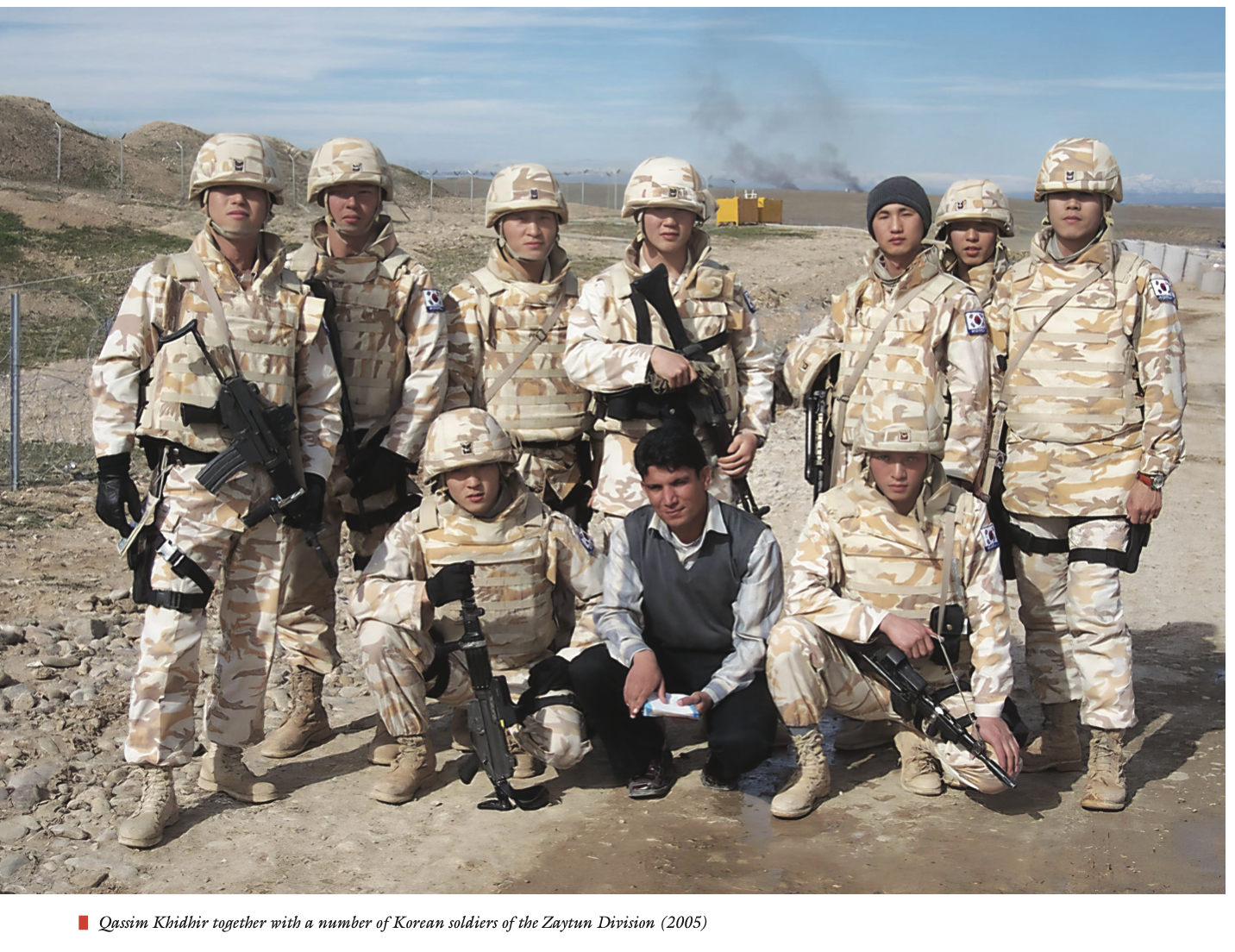
Winning the hearts of the Kurdish people
Before their arrival, Koreans and Kurds were strangers, with no connection or history between them. But that quickly changed.
Most of the Korean soldiers were not fighters. They were engineers, technicians, and medics focused on rebuilding the Kurdistan Region. Shortly after their arrival, they introduced a program inspired by South Korea’s Saemaul Undong, or New Village Movement, which was launched by former President Park Chung Hee in the 1970s to modernize rural communities. The South Korean soldiers went out to villages around Erbil, helping to clean streets, install water systems, rebuild schools, and offer healthcare. What made their efforts special was the way that they worked hand in hand with the local people. They talked to village leaders, school principals, and religious figures to ensure that their help matched the community’s needs.
I still remember how quickly the South Koreans won the hearts of the Kurdish people, who adored them. It was not unusual to see kids running around with their faces painted – one cheek with the Korean flag, the other with the Kurdistan flag. These soldiers did not just help rebuild villages; they built relationships. Every time they finished a project, they would throw a festival in the village. There were also medical check-ups, traditional Korean performances, and gifts for the children. These moments created memories that people still cherish today.
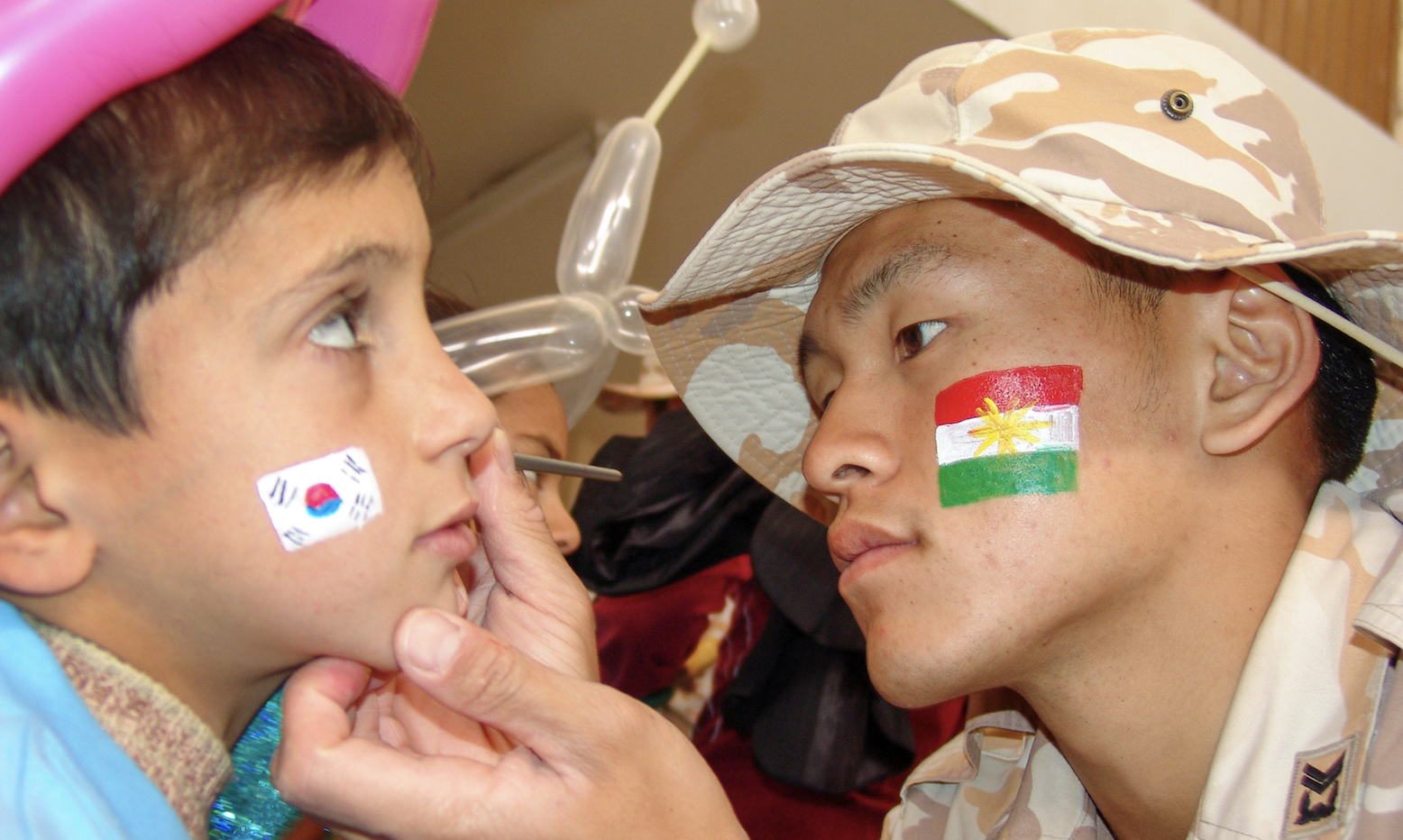
In Kurdistan, where hospitality is a way of life, the South Koreans reflected that same spirit. They respected Kurdish culture and worked with humbleness and dedication. By the end of their mission in 2008, over 3,000 South Koreans had served in Kurdistan.
They did not just provide temporary aid; they empowered the people. They established a vocational training center where young Kurds learned skills like driving heavy vehicles, basic engineering, and even baking. The goal was simple: to help them find jobs and improve their lives. Over 2,300 people received vocational training, of whom 80% went on to find jobs either in the private sector or with the Kurdish government.
The field hospital inside the Zaytun base became one of the most popular in Erbil. Every morning, crowds lined up to receive treatment, with the South Koreans treating more than 88,000 local patients during their time in the region.
Moreover, the Zaytun Division undertook many projects in the Kurdistan Region, including constructing a hydropower plant, building schools and hospitals, equipping government offices with computers and buses, and providing training to peshmerga forces.
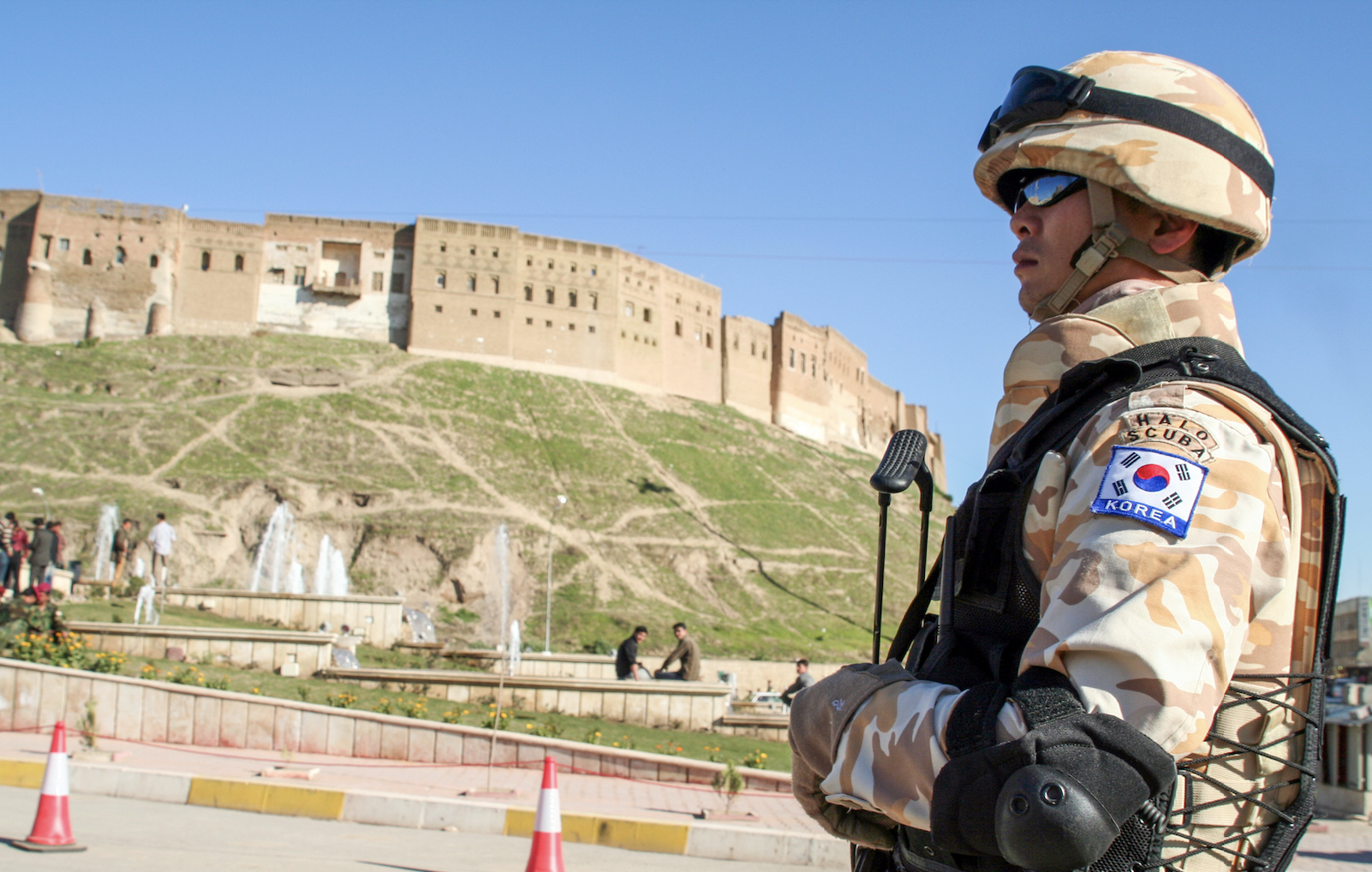
A sense of purpose
For me, working with the Zaytun Division was more than just a job as a translator. I felt a deep sense of purpose. The South Koreans were not just there to fix things quickly; they were focused on long-term improvements, teaching skills that would benefit people for years to come. Their philosophy was clear: “Teach a man to fish rather than give him a fish.”
What made their presence even more remarkable was how peaceful it was. While other parts of Iraq were facing daily violence, the South Korean soldiers in Kurdistan enjoyed a peaceful coexistence with the local population. In all their years here until December 2008, they suffered no fatalities. The Kurdish people deeply appreciated their work. In a 2007 survey, over 80% of people in Erbil expressed their support for the South Korean Army and wished they would stay longer. This showed just how much the South Koreans had meant to the region.
At the recent celebration, South Korea’s Ambassador to Iraq Choi Sung-soo, spoke of a “special bond of friendship,” a bond that I, too, feel deeply. Working with the South Koreans back in 2004, I witnessed the beginning of this relationship, and hope it only continues to grow stronger over time.
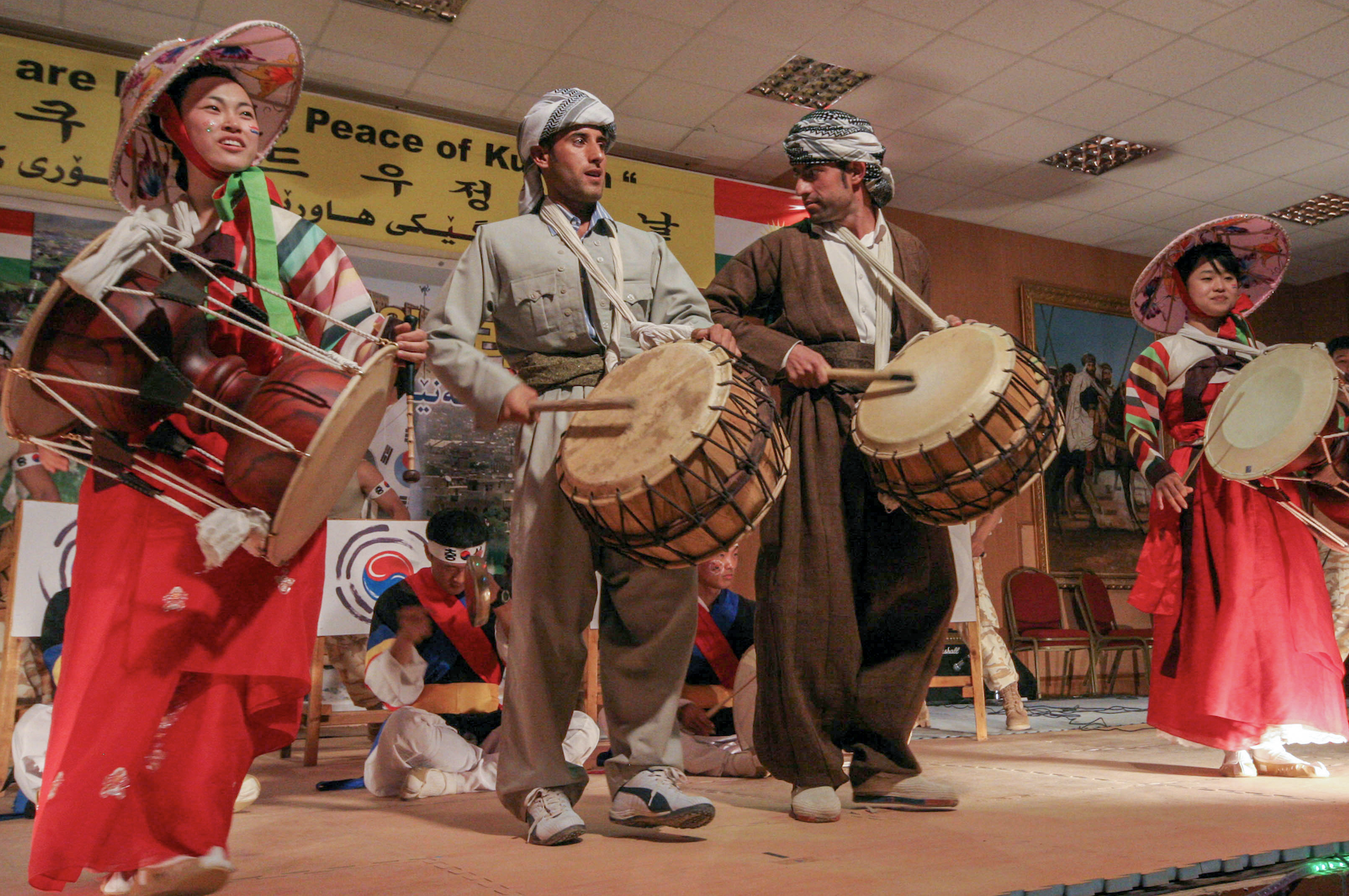
Beyond their development work, the South Koreans also left a cultural impact. Many Kurds today are fans of Korean dramas, and some have even learned the Korean language. This cultural exchange is just another example of how deeply intertwined our paths have become.
Even more, the South Korean diplomats appointed to the Kurdistan Region after the withdrawal of their army have always integrated deeply into Kurdish society and become highly popular. Many took the time to learn the Kurdish language and proudly wore traditional Kurdish clothing during celebrations like Newroz. One notable example is former Consul General Choi Kwang-Jin, who even published a volume of poetry in the Kurdish language.
As they once said, “we are your friends,” and we, the people of Kurdistan will never forget the kindness and friendship of the South Korean people.
Qassim Khidhir has 15 years of experience in journalism and media development in Iraq. He has contributed to both local and international media outlets.
